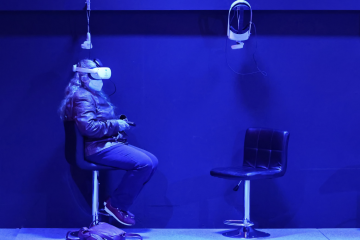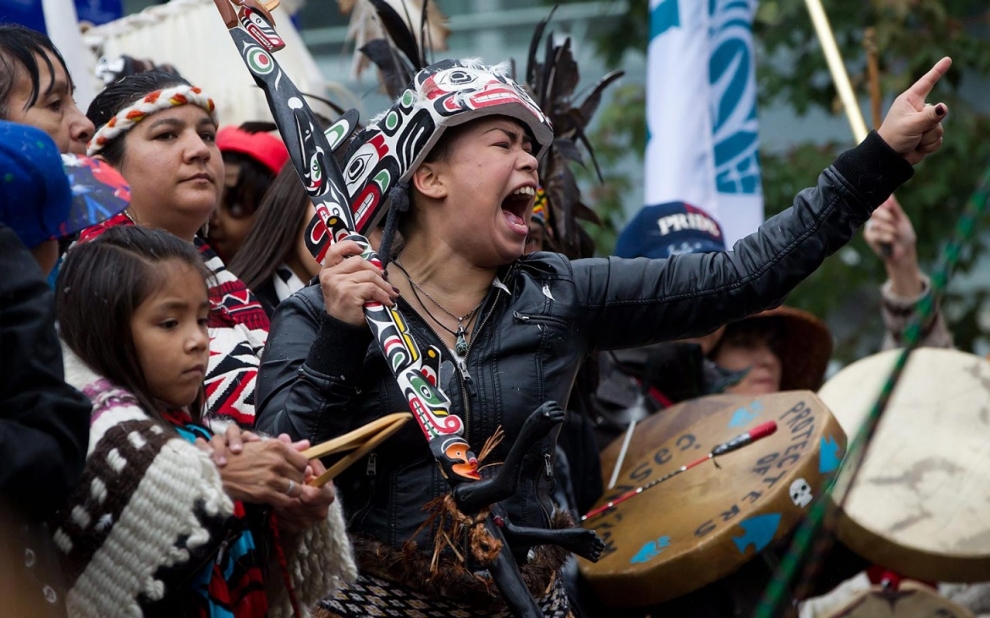The universal nature of human rights compels governments and people to be concerned with individuals and populations living under worse conditions beyond their own borders. International law imposes an obligation on states to guarantee the protection of not only their own citizens but also those persons in other nations whose governments have either failed to protect or otherwise persecute systematically. Such requirements, and the natural urge to come to the aid of anonymous people miles away, are morally unimpeachable.The unversality of human rights, however, results in paying more attention to events abroad at the expense of domestic concerns. This is especially the case in developed countries, where, living standards being acceptable and cases of persecution relatively few, governments and people turn their gaze outward and fail to see the human rights offenses happening under their own noses.
Canadians are guilty of this outward focus: we admonish the crimes of foreign regimes like Syria, Libya and China and turn a blind eye to the human rights transgressions of Canadian overseas mining companies in South America. What is worse, we do not even consider the unsatisfactory human rights standards held up by our own elected governments.
Stephen Harper and the Conservative Party government, in fact, ended numerous human rights programs and institutions since coming to power in 2006, contributing to a poor human rights record right here in Canada. In September 2012, the Appeal of Conscience Foundation in New York City honored Harper with the World Statesman of the Year award as a “champion of freedom and human rights”. The accolade gives lie to Harper’s assaults on democracy and systematic reduction of human rights programs across the country.
This year, Harper shut down the International Centre for Human Rights and Democratic Development, which monitored human rights internationally and lobbied for the rule of law in places like Afghanistan and Haiti for over two decades. Harper also closed the Toronto, Halifax and Vancouver offices of the Canadian Human Rights Commission in 2010. In his first year as head of government, he ended funding to the Status of Women Canada and ceased the activities of the Court Challenge Program. The Conservative cut further funds to the Canadian Council for International Cooperation and KAIROS. According to Minister of Foreign Affairs John Baird such closures were required to find “savings.”
The Canadian head of state dragged his heels on one of the gravest human rights cases in Canadian history: the illegal detention from 2002 to 2012 of Toronto-born Canadian citizen Omar Khadr by the United States at the Guantanamo Bay detention camp in Cuba. In 2010, the United Nations formally recognized Khadr as a child soldier and a Supreme Court of Canada judgment deemed his retention at Guantanamo a violation of his constitutional rights under the Charter of Rights and Freedoms. On September 29 2012, Omar Khadr was quietly repatriated to Canada and transferred to a high-security penitentiary in Kingston, Ontario. Harper and the Canadian government delayed Khadr’s transfer with bureaucratic hurdles, as US government officials awaited approval from their Canadian counterparts for many months during the fall.
Harper’s equivocating on the Khadr case and closing of the Canadian Human Rights Commission and other institutions is leading Canada into a domestic human rights crisis. Michael Ignatieff once said Canada has a “distinctive rights culture”, from minority rights to social democratic and health and welfare rights, and even aboriginal rights. Our country must continue its commitment to its rights ideals, not just by pursuing human rights beyond our own borders in foreign policy matters, but by also pursuing them where it matters most: under our own noses – right here in Canada.




